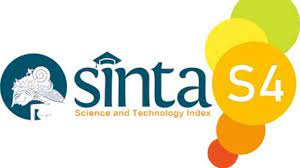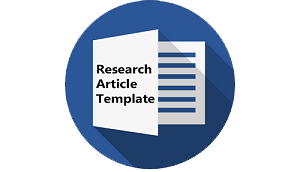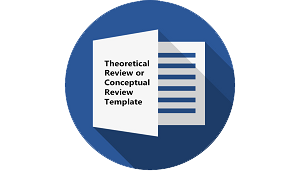TEACHING ANECDOTE WRITING BASED ON THE 2016 REVISED CURRICULUM TO THE TENTH GRADERS OF SMKN 1 GONDANG SRAGEN
DOI:
https://doi.org/10.30957/ijoltl.v2i3.388Keywords:
2013 curriculum, revised 2016 curriculum, writing, anecdote text.Abstract
         ÂThis study describes: (1) process of writing anecdote text based on the 2016 revised curriculum conducted by Indonesian Language teachers to the tenth graders of SMKN 1 Gondang, Sragen, (2) problems in the process of writing, and 3)  efforts to overcome the problems made by the teachers. This qualitative research uses case study approach. The data sources in this research were events (the process of writing anecdote text), informants (teachers and students), and documents (syllabus and lesson plan). The results show that teaching to write anecdote text based on the 2016 revised curriculum needs more in-depth evaluation in order to improve planning, implementation, and assessment. It is also based on the encountered obstacles occurred in the learning process. The evaluation should uncover concepts, regulations and national education objectives implied in the curriculum the schools should attain.
Â
Downloads
References
Andayani. (2015). Problema dan Aksioma dalam Metodologi Pembelajaran Bahasa Indonesia. Yogyakarta: Penerbit Deepublish.
Arifin, Z. (2012). Konsep dan Model Pengembangan Kurikulum. Bandung: Remaja Rosdakarya.
Bennie, Kate and Karen Newstead. (1999). Obstacles to Implementation a New Curriculum. www.academic.sun.ac.za. Diakses 21 Juni 2017.
Idi, Abdullah. (2007). Pengembangan Kurikulum: Teori dan Praktik. Jogjakarta: Ar-Ruzz Media.
Kusumaningsih, dkk. (2013). Terampil Berbahasa Indonesia. Yogyakarta: Penerbit ANDI.
Labane, Nokubonga. (2009). Planning and Managing Curriculum Implementation in Rural Schools: an Investigation, Nelson Mandela Metropolitan University, www.- dspace.nmmu.ac.za:8080. Diakses 21 Juni 2017.
Law, Edmon H.F; Wan, Sally W.Y; Galton, Maurice; Lee, John C.K. (2010). Managing school-based curriculum innovations: a Hong Kong case study. Curriculum Journal. Volume 21, Issue 3, 2010. http:// www.tandf.co.uk/journals/titles. (Online 15 Juni 2017)
Mulyasa. (2014). Pengembangan dan Implementasi Kurikulum 2013. Bandung: PT Remaja Rosdakarya.
Oliva, Peter F. (1997). Developing The Curriculum (Third edition). Harper Collins Publishers: United States
Peraturan Menteri Pendidikan dan Kebudayaan Nomor 22 Tahun 2016 tentang Standar Proses Pendidikan Dasar dan Menengah.
Peraturan Menteri Pendidikan dan Kebudayaan Nomor 23 Tahun 2016 tentang Standar Penilaian Pendidikan.
Peraturan Menteri Pendidikan dan Kebudayaan Nomor 24 Tahun 2016 tentang Kompetensi Dasar Pelajaran Pada Kurikulum 2013 Pada Pendidikan Dasar dan Menengah.
Priyatni, E.T. (2014). Desain Pembelajaran Bahasa Indonesia dalam Kurikulum 2013. Jakarta: PT. Bumi Aksara.
Tarigan, H. G. (2013). Menulis sebagai Suatu Keterampilan Berbahasa. Bandung: Penerbit Angkasa.
Sanjaya, Wina. (2008). Kurikulum dan Pembelajaran: Teori dan Praktik Pengembangan Kurikulum Tingkat Satuan Pendidikan (KTSP). Jakarta: Fajar Interpratama Offset.
Undang-Undang Nomor 20 Tahun 2003 tentang Sistem Pendidikan Nasional.
Downloads
Published
How to Cite
Issue
Section
License
Authors who publish with this journal agree to the following terms:
- Authors retain copyright and grant the journal right of first publication with the work simultaneously licensed under a Creative Commons Attribution-ShareAlike 4.0 International License that allows others to share the work with an acknowledgement of the work's authorship and initial publication in this journal.
- Authors are able to enter into separate, additional contractual arrangements for the non-exclusive distribution of the journal's published version of the work (e.g., post it to an institutional repository or publish it in a book), with an acknowledgement of its initial publication in this journal.
- Authors are permitted and encouraged to post their work online (e.g., in institutional repositories or on their website) prior to and during the submission process, as it can lead to productive exchanges, as well as earlier and greater citation of published work (See The Effect of Open Access).












